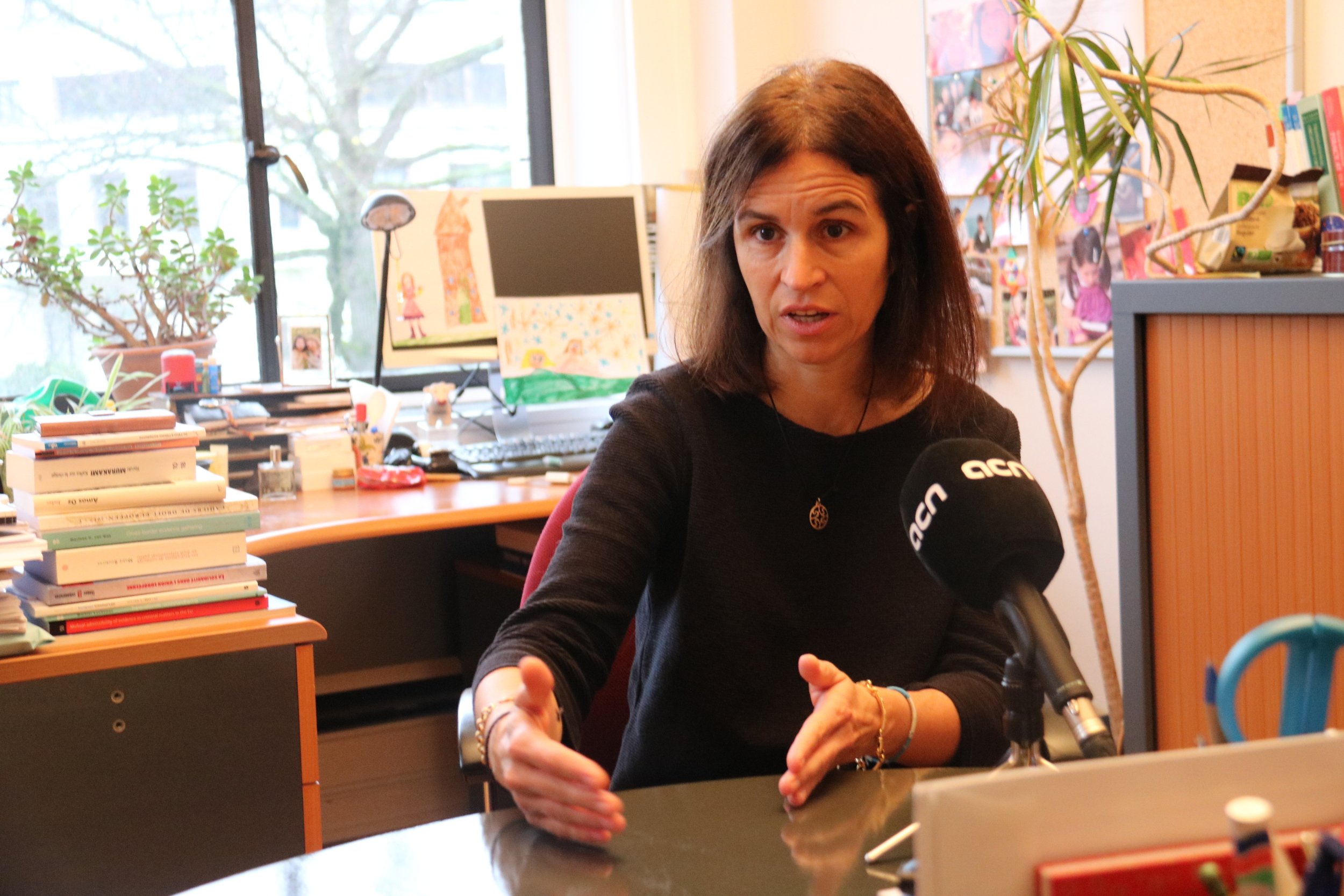The president of the Institute for European Studies (IEE) of the Université Libre de Bruxelles, Anne Weyembergh, says there is a legal basis for the judge who this Friday will hear president Puigdemont and the ministers with him in Brussels to refuse their extradition. Weyembergh told Catalan news agency ACN that Belgian authorities could conclude that there are "serious risks of human rights violations" if they are handed over, which "could help those who are in prison" in Madrid. She noted that the European Arrest Warrant (EAW) system isn't "automatic" and that "the Belgian judge can decide to refuse its execution". In terms of reasons for the judge to accept the extradition, Weyembergh mentioned the "principle of mutual trust between states", but warned that in any case, the decision "is legal, not political".
The professor also said that Belgian authorities will have to check whether the requirement of double criminality is met in the extradition order for Puigdemont and ministers Toni Comín, Meritxell Serret, Lluís Puig and Clara Ponsatí. "And one has a problem, here, because although the Belgian penal code includes the crimes of sedition and rebellion, the definitions aren't the same as in Spain," she said.
The specialist in European legal and police cooperation explained that the EAW is a mechanism which tries to simplify the normal extradition process between EU member states. Whilst the normal process requires double criminality, in other words, for the charges to be for crimes that exist in the statutes of both countries, the EAW system removes this requirement for 32 crimes.
"The problem here is that the crimes which Puigdemont is accused of aren't on the list and I'm thinking especially of sedition and rebellion," said the president of IEE. In other words, the principle of double criminality has to be met and as such the crimes have to be contemplated in Belgian law, which lists different definitions and punishments. "So it will depend on the judge to evaluate, first, whether there is a real and serious risk for fundamental rights and also whether the double requirement is fulfilled or not," she said. She also noted that Puigdemont's Belgian lawyer, Paul Bekaert, has already said he will use such arguments against their extradition.
Asked whether a refusal from the Belgian justice system could help the ministers in prison in Madrid, the interviewee said "not directly" but that "needless to say" the fact that Puigdemont had gone to Brussels has increased the focus on the case and this "has helped the others". She also said, however, that "if the authorities says that there is a risk of violation of human rights in the case of extradition, that could help those who are in prison".
Possibilities that extradition is accepted
Asked what chance she believes there is over extradition be granted, Weyembergh offered two different perspectives. "If you think of the principle of mutual trust between states, the possibilities that extradition is accepted are higher," she said on the one hand. On the other, she said that "especially the requirement of double criminality" has made a refusal possible.
"I insist, however, that the decision will depend on the legal authorities and not the political ones," she said. She highlighted that it's "very important" to remember this because one of the "greatest" improvements introduced with the European Arrest Warrant has been the "depoliticisation of the procedure". "As such there's no room for a political decision here, it's solely legal."
Legal procedure and the timeline
President Carles Puigdemont and the ministers with him in Belgium have been summonsed to appear in a Belgian court at midday this Friday for a hearing with the judge who will have to decide on the EAW from Spanish authorities. Prosecution sources say that the judge's decision will not be published that same day, as he has a number of days to deliberate it.
Whatever decision is taken by the Brussels judge, however, will not be definitive. Both the prosecution and the defence will have the possibility to appeal it to the Appeals Court, which will have 15 days to make its own decision. Even then they will be able to present further appeals to the Court of Cassation. "The final decision is expected within two months of the arrest, but with the possibility of delaying it a further month. As such, we're talking about a maximum of three months total," said the expert.

